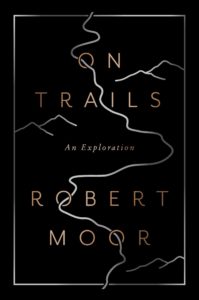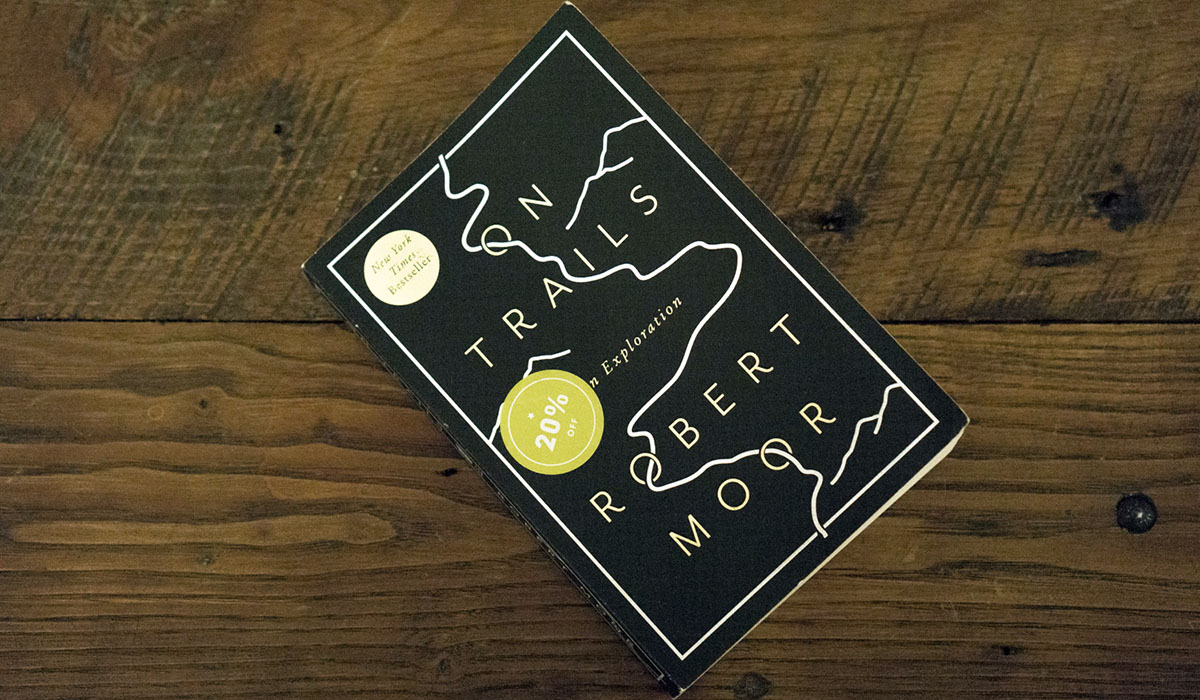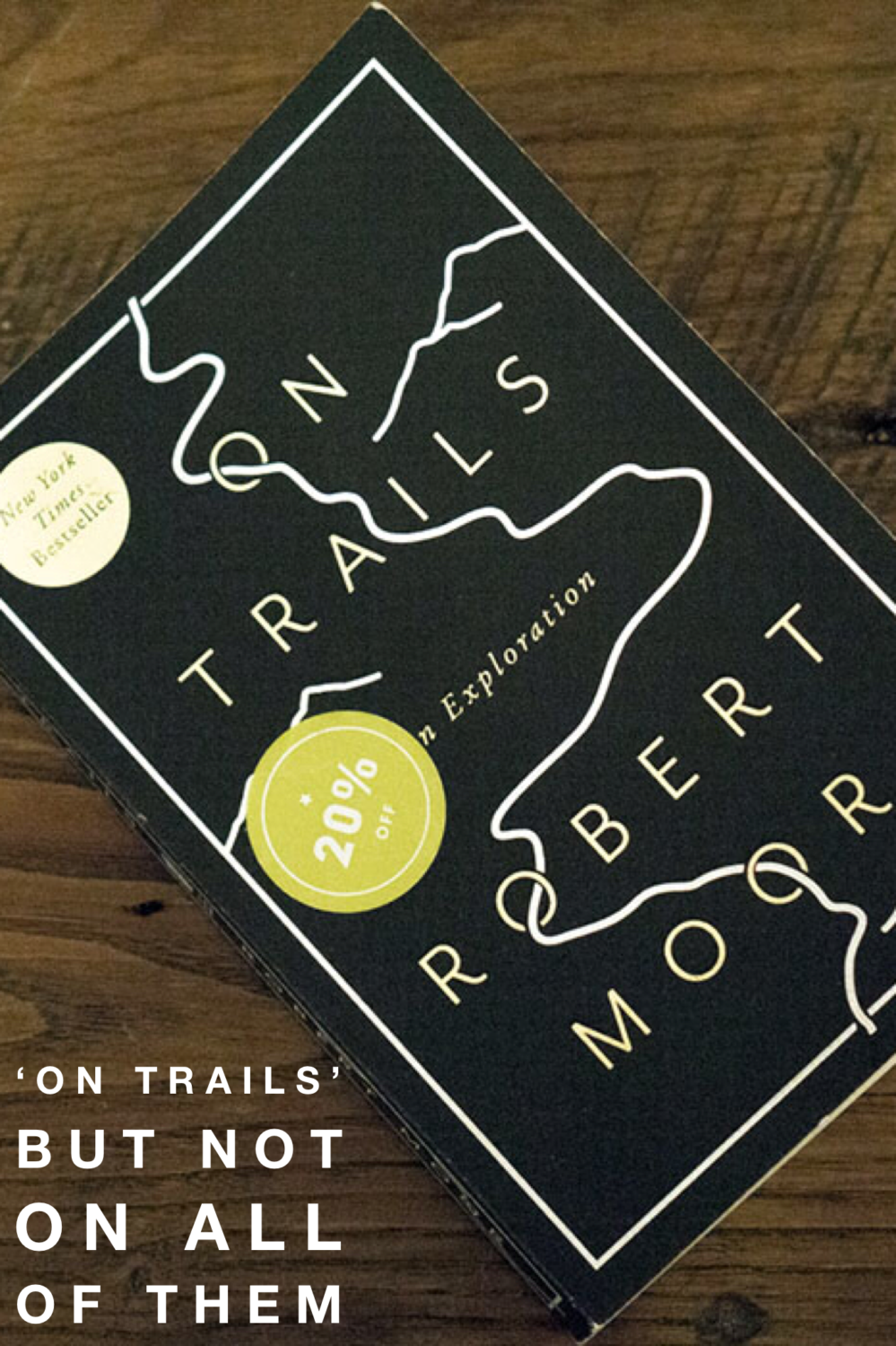It didn’t occur to me until I was reading the epilogue of Robert Moor’s well regarded new book, On Trails, that the title has a dual meaning. I’d understood it first as one in a long line of similar titles: On Liberty, On Beauty, On Human Nature, etc. But coming toward the final pages, it suddenly hit me that Moor could have meant something more along the lines of [being] on trails, like On the Road. I wonder if this double meaning was intentional.
I think intent is important here, because this is not a book that offers a comprehensive consideration of trails, even if at first glance it seems headed that way. Moor starts with the earliest trails of any kind—those created by the first known animals, called Ediacarans, 565 million years ago. In the next chapters he moves onto caterpillar trails and ant trails, helping me above all to discover the limits of my attention span for the comings and goings of very small animals. I’d picked up the book eager to read about humans and trails, about the romance and adventure of them, and caterpillars simply did not make for a good surrogate.


On Trails
by Robert Moor
Simon & Schuster
352 Pages
Small animals aside, On Trails isn’t so much a book about trails as it is a book about the particular trails Moor has walked. The most influential of these to his life, and the one that receives the most attention from him here, is the Appalachian Trail. As a kid at sleep-away camp one summer, Moor hiked Mount Washington and came to a section of the Appalachian Trail, sparking a fascination with it that would carry into adulthood. Soon after college, Moor completed the trail over the course of five months, and though he returned to New York City after, the concept of trails stayed with him everywhere he looked.
Throughout the digressions and the endless musings on the Appalachian Trail, it is clear that Moor is a good writer. He’s at his best, though, in my favorite parts of this book, the prologue and epilogue, where he examines his own connection to trails, and brings in best of others’ thinking on them, as exemplified in the following passage from the prologue:
Seen in a certain light, trails represent a particularly grim form of determinism. “Man may turn which way he please, and undertake any thing whatsoever,” wrote Goethe, “he will always return to the path which nature has prescribed for him.” On the AT, this was certainly case. Though I explored the surrounding woods and hitchhiked into towns, in the end I always came back to the trail. If uncertainty is the heart of adventure, I thought to myself, when kind of adventure was this?
Moor also in the prologue lays out his purpose for this book—to “find the nature of trails,” and how they have come to act as “an essential guiding force on this planet.” To me, that aim suggests something sweeping in scale. I expected to read about the Silk Road. I expected Moor to follow, at least figuratively, the trade routes of the Roman Empire. I hoped that in addition to tracking down the earliest-ever trails by the any animal, he might also find the earliest human trails.
Instead, we are given 50 or so pages on forms of life smaller than my pinkie, followed by a few on larger mammals that form their own trails in nature. Moor goes herding and hunting on the trails of those who know how to do it. Then, for the next 100 pages, he settles into an examination not only of Cherokee trails, but of all else about Cherokee life and culture, along with the evolution of the Appalachian Trail. Much of this is fascinating, as it happens. Much of it also isn’t really about trails, even tangentially. And I felt myself wondering, turning page after page, when we were going to get out of the eastern United States?
Moor does take us to Iceland, briefly, and then to Morocco, toward the book’s end, but only because the mountains there, in the ancient times of Pangea, were part of the Appalachians (or was it the other way around).
I’m left wanting for a more complete consideration of trails. On Trails is well written and all over the place, which I guess makes it slightly less well written. Using the first meaning of the title, this book fails—it is not really a book on trails. But using the second, which suggests the experience of one man, on the particular trails he has traversed, On Trails succeeds. Moor went on a lot of trails to write this book. The problem for this particular reader is that she picked it up and paid $16 for it in anticipation of its fulfilling its promise in the way she first understood it.







